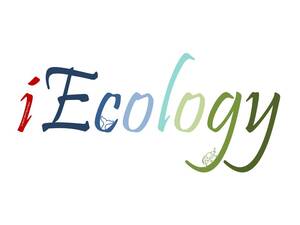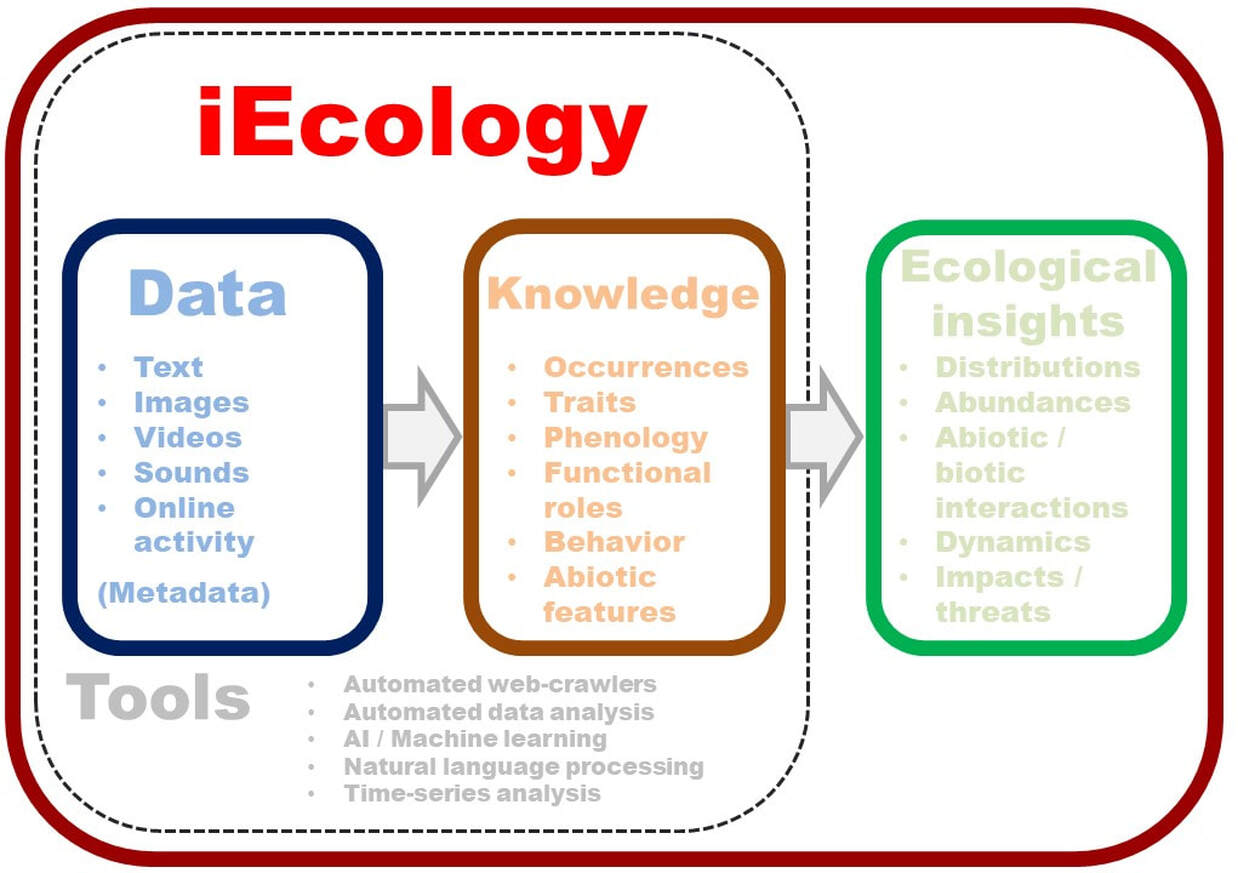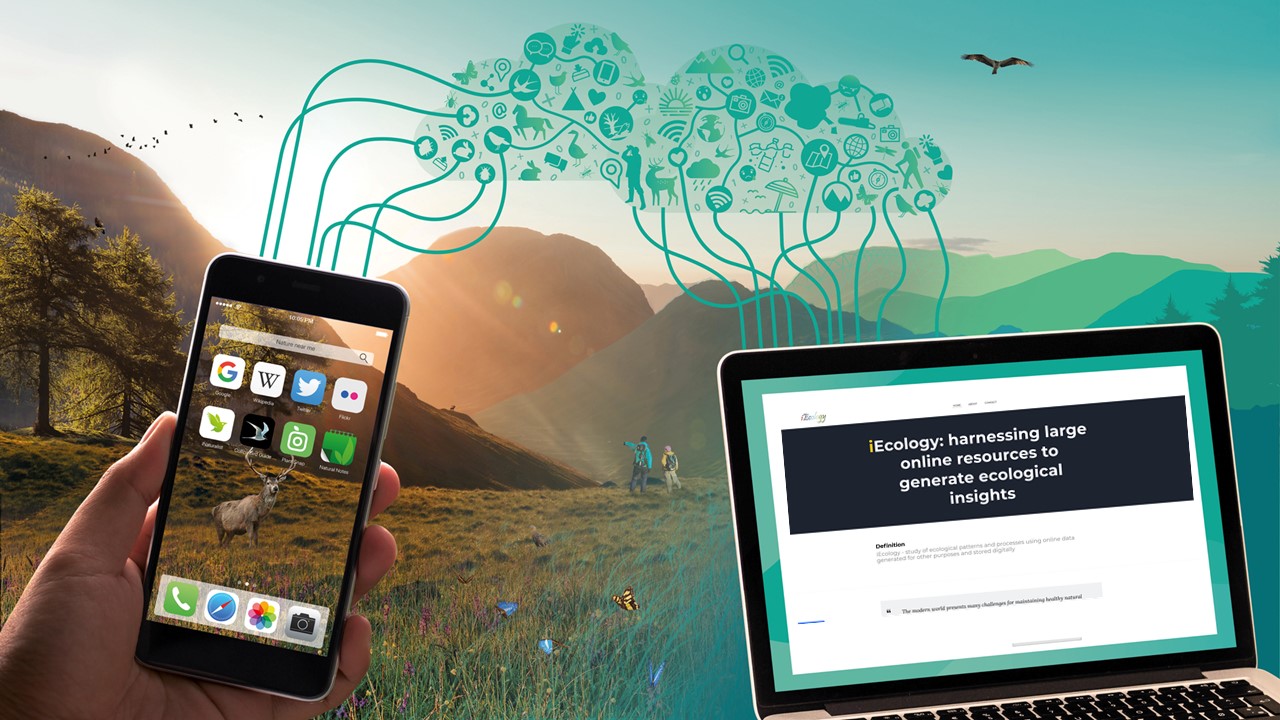Introduction
The information age is characterized by rapid accumulation of myriad types of digital data. Central to this revolution is the Internet, which is a source of unprecedented amounts of highly diverse and readily accessible data, via webpages, social media and various other data platforms. These data are constantly created and stored in the digital realm and form an omnipresent part of the modern world. They also provide novel opportunities for research that the scientific community is only beginning to explore.
iEcology - is the study of ecological patterns and processes using data generated for other purposes and stored digitally
These data can be used to address fundamental ecological questions and to analyze ecological processes at a range of spatiotemporal scales and across a diverse range of contexts. As such, iEcology has the potential to provide new understandings of ecological dynamics and mechanisms, complementing more traditional methods of obtaining ecological data.
In a paper published recently in the journal Trends in Ecology and Evolution, we map out this field, its possibilities, challenges, and potential future directions.
iEcology - is the study of ecological patterns and processes using data generated for other purposes and stored digitally
These data can be used to address fundamental ecological questions and to analyze ecological processes at a range of spatiotemporal scales and across a diverse range of contexts. As such, iEcology has the potential to provide new understandings of ecological dynamics and mechanisms, complementing more traditional methods of obtaining ecological data.
In a paper published recently in the journal Trends in Ecology and Evolution, we map out this field, its possibilities, challenges, and potential future directions.
The modern world presents many challenges for maintaining healthy natural ecosystems. It also provides novel opportunities to help turn the tide on the biodiversity crisis.



